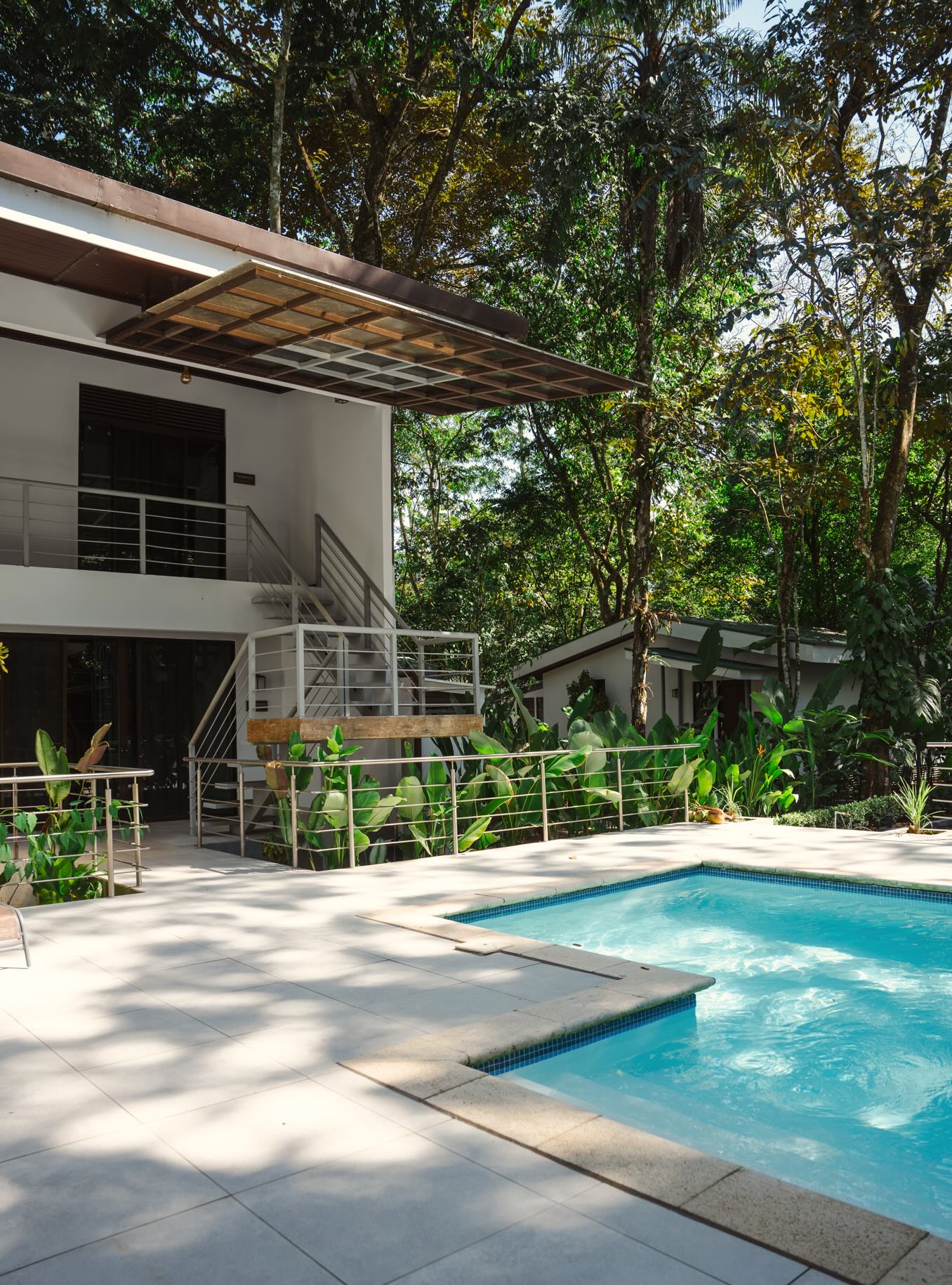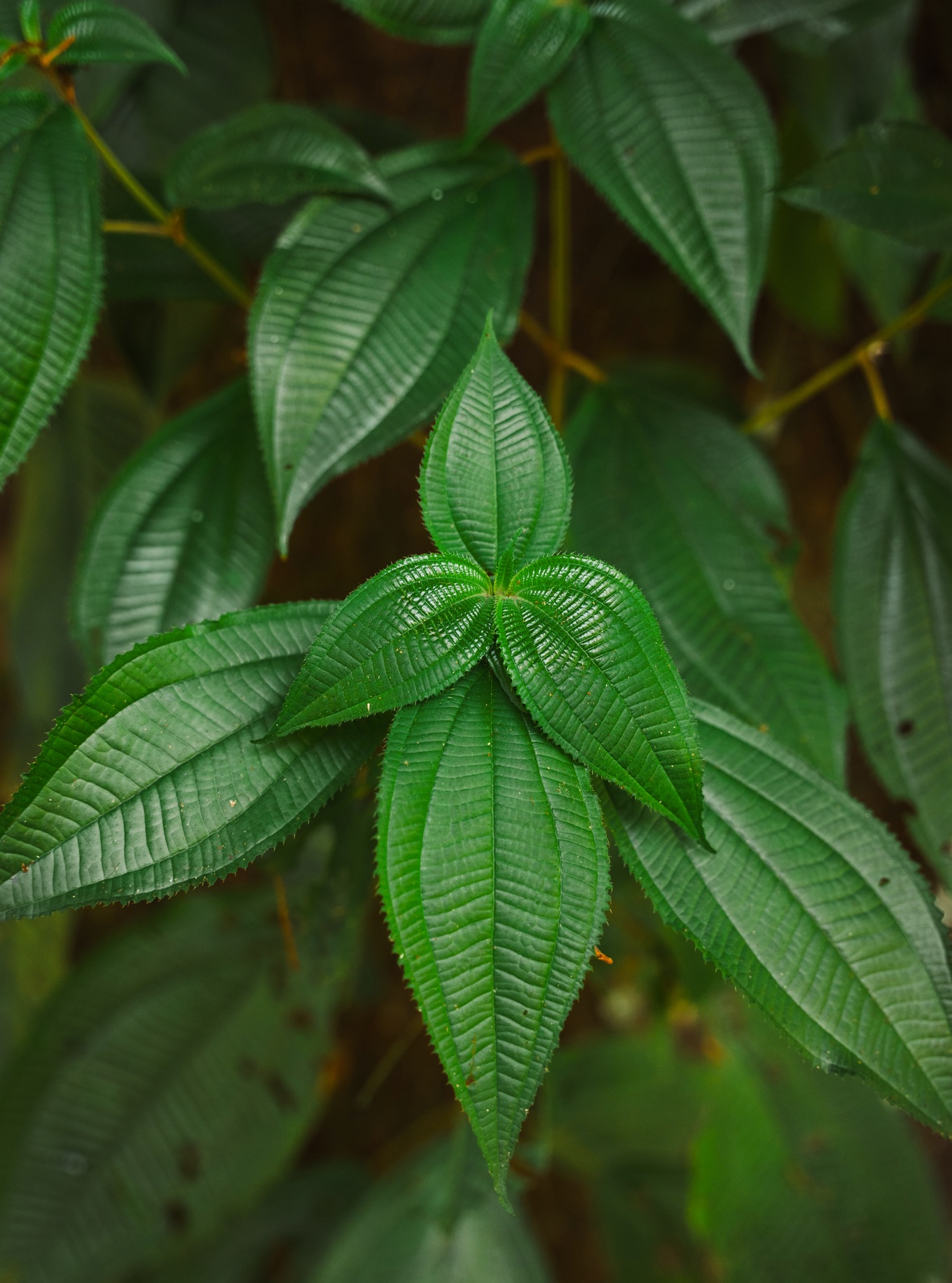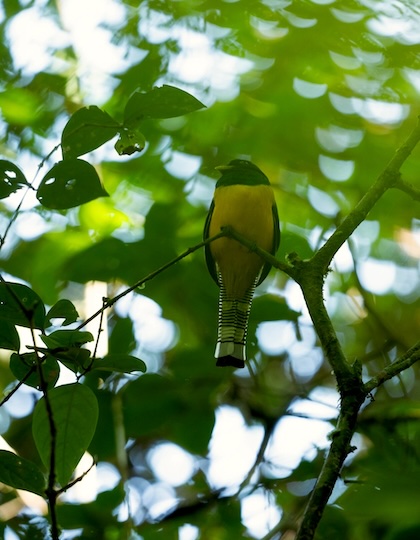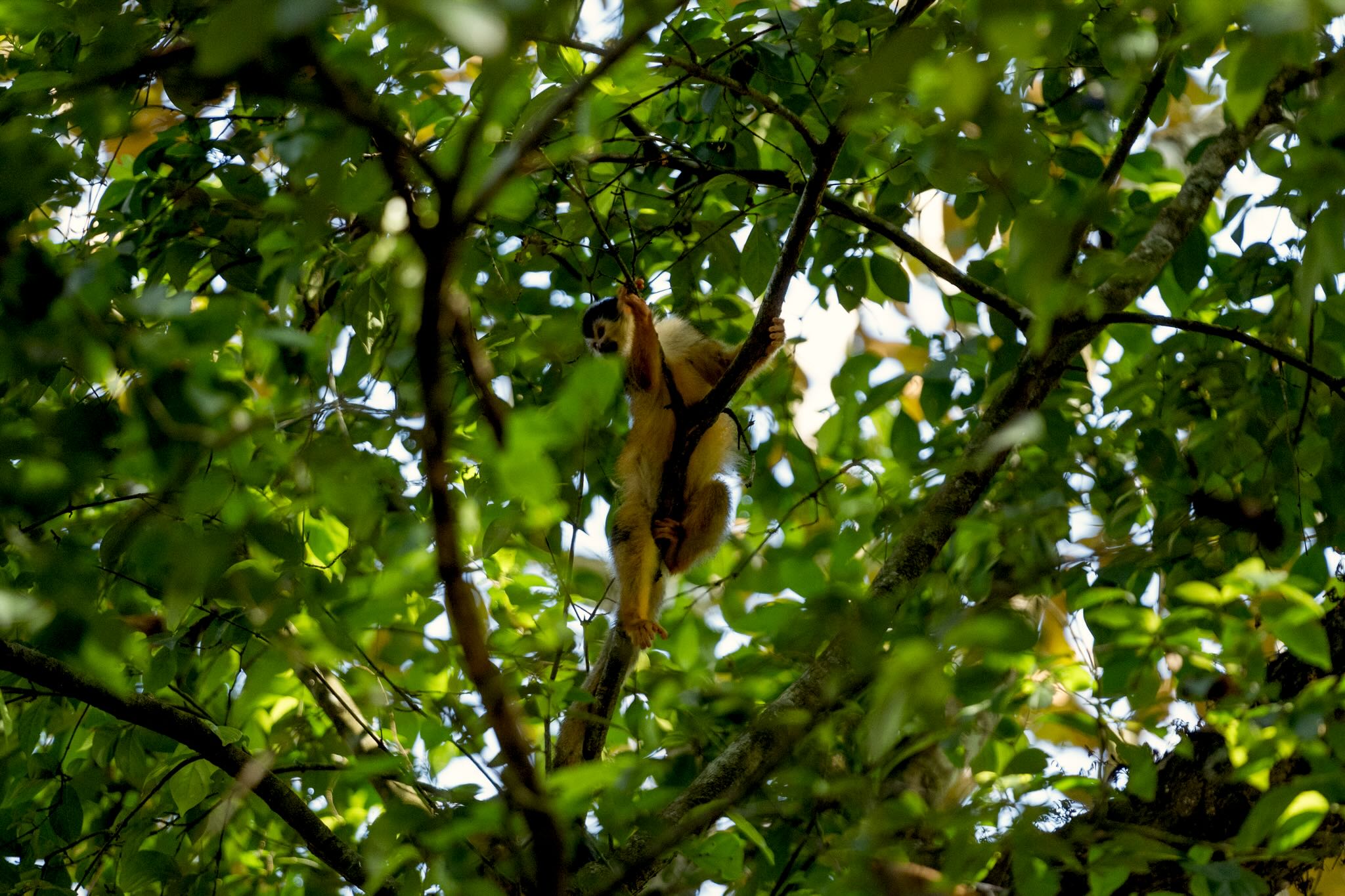Even if you’ve read the guidebooks and know all about Costa Rica’s southwestern Osa Peninsula being renowned for its biodiversity, nothing brings “biologically intense” into sharp focus like descending at speed in a 12-seater Sansa plane from capital San José towards the diminutive Puerto Jiménez airstrip – which ends abruptly in a dense band of steamy coastal jungle. After the pilot’s successfully stopped short of it and looped around to the exit gate right by the road (forget queueing at passport control), the plane’s doors are flung open and you get your first hit of tropical air, warm and humid, heavy with the scent of flowers and filled with cicada song turned up to the max. A trio of noisy scarlet macaws flies past. A giant blue morpho – the butterfly emoji, made real – flutters by – and that’s before your feet have even touched the tarmac.
But this sensory overload is nothing compared to the moment, five minutes later, when you jump out of the 4x4 at 15-key Nereus Retreats – a clutch of contemporary whitewashed single- and two-storey villas arranged around an open-plan main building – and are given a homemade guava popsicle to slurp in a rocking chair poolside while listening to the howler monkeys in the tree canopy above. “Intense” doesn’t cut it.
But this sensory overload is nothing compared to the moment, five minutes later, when you jump out of the 4x4 at 15-key Nereus Retreats – a clutch of contemporary whitewashed single- and two-storey villas arranged around an open-plan main building – and are given a homemade guava popsicle to slurp in a rocking chair poolside while listening to the howler monkeys in the tree canopy above. “Intense” doesn’t cut it.


Accommodation at Nereus Retreats, left, and native flora
While it’s been said that simply “sitting outside” counts as an activity in the hyper-alive Osa, there’s a lot to keep you busy at this yoga-led stay, run by New York-born nutritionist and functional medicine teacher Jen Millar and her Scottish husband Stu, who have together created a world-class educational centre, hotel and health-supportive kitchen in this remote part of the country they’ve called home for 14 years. Whether you’re coming for a yoga training or spiritual retreat – because, frankly, whose inner child wouldn’t benefit from a little TLC right about now – or independently, to hike, surf, horse ride, kayak, immerse yourself in wildlife or indulge in some spa time, this off-grid sanctuary provides a dream space for a transformative stay.
Just don’t be alarmed if you hear a scratching at your bedroom door late at night. It’ll only be a Halloween crab – they live on land and come out after dark.
While it’s been said that simply “sitting outside” counts as an activity in the hyper-alive Osa, there’s a lot to keep you busy at this yoga-led stay, run by New York-born nutritionist and functional medicine teacher Jen Millar and her Scottish husband Stu, who have together created a world-class educational centre, hotel and health-supportive kitchen in this remote part of the country they’ve called home for 14 years. Whether you’re coming for a yoga training or spiritual retreat – because, frankly, whose inner child wouldn’t benefit from a little TLC right about now – or independently, to hike, surf, horse ride, kayak, immerse yourself in wildlife or indulge in some spa time, this off-grid sanctuary provides a dream space for a transformative stay.
Just don’t be alarmed if you hear a scratching at your bedroom door late at night. It’ll only be a Halloween crab – they live on land and come out after dark.
Rooms
The accommodation options are as flexible as you’ll be after your daily yoga practice. A clutch of single and two-storey villas flank the central pool and extend along paths between the trees, sleeping between one and four. There are powerful ceiling fans and A/C (which if you’re thinking “energy conservation”, you might dare yourself not to use). There’s loads of storage room, USB charging for devices and heavenly beds. In the airy bathrooms, you’ll find a selection of full-size organic Biosfera products, sustainably made in Costa Rica using rainwater. Our shower had a high-up window, through which we could watch squirrel monkeys performing acrobatics while washing our hair. Surreal.

A bedroom at the retreat, and a family-style dinner dish
What’s for breakfast?
But first, coffee. The kind served at Nereus is robust, made from locally sourced, small-batch beans, and will spoil you for any other kind of coffee forevermore. Beyond the caffeine fix, there’s a daily buffet selection including the likes of toasty coconut granola, overnight-soaked oats and chia seeds, eggs, yoghurts, fresh papaya, guava and pineapple, plus daily specials that run the gamut from national staple gallo pinto (rice and beans) to gluten-free pancakes with local organic honey. Jen’s baking is legendary: if you hover around the open kitchen enough, you might get to sample a new creation straight out of the oven.Lunch and dinner
Served family-style in the open dining area, lunches and dinners are a touchstone of days at Nereus – ingredient-driven, characterised by an abundance of colour and a wide range of tastes, with all dietary requirements catered for. Lunch might be mahi mahi, caught a stone’s throw away, along with a rainbow of salads, marinated tofu, local cheeses, condiments and dressings; dinner, a taco extravaganza, or – our favourite – Chifrijo, a DIY dish that originated at Cordero’s Bar in San José in 1979, when bartender Don Miguel Cordero fancied a snack and experimented with combining rice, beans, pico de gallo, avocado and corn tortillas, to winning effect. Desserts? The gluten-free brownies made with cacao from a local farm and mini pineapple upside-down cakes are the stuff of legend.

Flora and fauna surrounding the Osa Peninsula retreat
There’s a small-but-perfectly-formed swimming pool and, less than a 60-second walk away, Playa Preciosa beach, on the Pacific-fed Golfo Dulce (Sweet Gulf), complete with palm trees and fallen coconuts in the sand.
There’s also the serene Nereus Spa, with a menu of treatments including lymphatic drainage massage.
Is there a bar?
Yes, on the first floor, overlooking the pool and the rainforest beyond, stocked with a thoughtfully curated selection of quality international pours (although alcohol isn’t served to participants on Yoga Alliance-accredited yoga trainings – presumably because it’s terrible for balance).Amenities
The purpose-built yoga studio, or shala, is an enchanted space, and worthy of a trip to the Osa Peninsula in itself, with three walls of floor-to-ceiling screens bathing it in an emerald glow. There are 12 big ceiling fans to keep the air flowing, sustainable, bamboo-wood flooring, Costa Rican made cork mats and blocks, and a stack of sage-green bolsters with covers made by a local seamstress. Daily yoga practice, workshops, meditations and sound baths all take place here. But be warned: one’s focus might be sorely tested when an eagle, family of wild boar or pesote (coati) hop into view outside. And breathe…There’s a small-but-perfectly-formed swimming pool and, less than a 60-second walk away, Playa Preciosa beach, on the Pacific-fed Golfo Dulce (Sweet Gulf), complete with palm trees and fallen coconuts in the sand.
There’s also the serene Nereus Spa, with a menu of treatments including lymphatic drainage massage.
During our stay, we met a dog whisperer, a group of surfer girls and a kick-ass Colorado grandmother
What are the hotel’s eco-credentials like?
Sustainability has been built in from the blueprint stage, with water conservation and waste reduction practices in place, and a complicated septic system featuring lava rock and carbon filtration. Say hello to the toilet bidet attachment – it cuts paper usage by up to 60 per cent. All fresh produce used in the kitchen is seasonal and locally sourced from independent businesses, while cleaning products and the Biosfera amenities in bathrooms are plant-based, biodegradable and made in Costa Rica.What about accessibility?
All communal areas and some rooms are wheelchair-accessible.What’s the crowd like?
An eclectic rotation of retreat attendees and independent travellers. During our stay, we met a dog whisperer (well, trainer) from Panama City, a group of surfer girls from Montezuma and a kick-ass grandmother from Fort Collins, Colorado.Within a short walk I can find…
The rainforest and the sea. The beach is less than a 60-second walk away, but don’t be surprised if it takes you much, much longer to get there, as you pause to wonder at a woodpecker or passing group of white-faced capuchin monkeys. There’s also a nearby creek, where you can sit, camera in hand, and wait for the resident croc to show his face. Not for nothing is this area a state-protected nature reserve.

Daily yoga practice in the purpose-built shala
The Nereus team will be happy to advise on other local outing options, which include kayaking, horse riding, whale- and dolphin-watching tours and a visit to a local cacao farm, where you can learn the art of bean-to-bar chocolate, before spending ages deliberating over which toppings to choose, from crystallised ginger to sea salt.
Things I should know
Around 5km from Nereus, the small coastal town of Puerto Jiménez is a gateway to Corcovado National Park, one of the most biodiverse regions in the world. Visitor numbers are strictly controlled, so booking in advance is essential. Corcovado Hiking Tours offers a return one-day boat tour to the park accompanied by an expert local guide, with trails following coastal and inland routes through habitats ranging from mangrove swamps to lowland and montane rainforests. The guide carries a high-spec scope, meaning that when you glimpse anteaters, sloths, tapirs, parrots and many more, you can watch them as if they were close enough to touch.The Nereus team will be happy to advise on other local outing options, which include kayaking, horse riding, whale- and dolphin-watching tours and a visit to a local cacao farm, where you can learn the art of bean-to-bar chocolate, before spending ages deliberating over which toppings to choose, from crystallised ginger to sea salt.
The Lowdown
Doubles cost from £135pp a night, on a full-board basis, with breakfast, lunch and dinner included; nereusretreats.com
